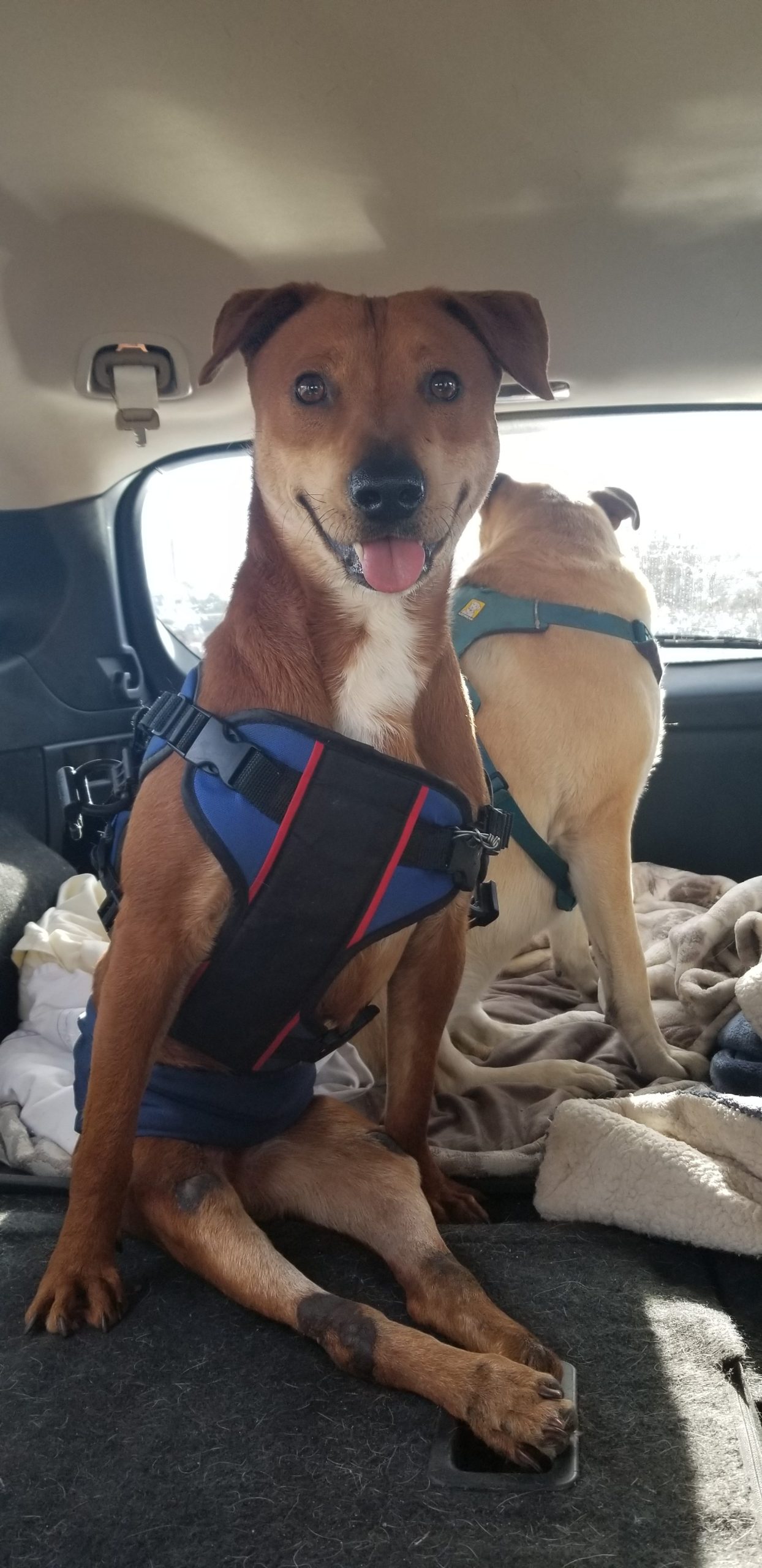
Thank God it’s…well, you know.
This morning brings a new population of ruby-throated hummingbirds to our front porch feeders. We now have five of the little suckers (literally) enjoying my husband Frank’s homemade nectar. After flying hundreds of miles across the Gulf of Mexico, they are as depleted as I am dispirited, and needing a break away from helping in the rescue dog community.
Spiritual leader Ram Dass wrote of burnout in the act of service work “…we take it all very seriously, because we are often so focused on how we’re doing that we lose a certain lightness and freedom in our work.”
His wise words seep in as a balm to my aching heart. Gratitude arises. Ram Dass passed on after eight-plus decades. In his lifetime, he shared his Buddhist-based teachings with us so we have something from which to derive perspective, hope, or sustenance.
Trying to help rescue dogs has been an independent venture where the incessant, interminable outreach becomes an energy expenditure that leads to burnout, in the absence of finding skillful ways to sustain the effort.
Anyone who has opened their heart to love animals will understand depletion and despair as thick now in our society as fog is in New England. There are reasons why we all have more animals in our home than logic or reason would dictate. We are all sensing the need, making sacrifices, and overwhelming ourselves to try and help others live well. Still others with means to help are turning away their hearts or shutting off their minds, resorting, instead, to distractions, self-medication, or entertainment.
I have 10 dogs at home, my husband and I sleep in separate bedrooms with a handful of dogs each, shares my friend Melissa. She and Gregg pull dogs back from the brink of euthanasia in San Antonio; one of their rescues now resides in our own home. Many of those rescues are what’s referred to in the rescue dog community as medical cases, meaning they need special care after they’ve collided with cars, been shot (in Texas, that is a thing), or contracted a preventable (and treatable) illness from ticks (fevers) or mosquitoes (heartworm).
Our own Willie Grommit carries in his body two lead-pellet souvenirs from the Rio Grande Valley, where he was found after scampering around, alone, for two weeks in search of food and shelter. The special person striking him down with their car drove away, leaving him to try to survive with his back legs paralyzed, by the roadside. When he was finally found by a Good Samaritan, the shelter wanted to end his young life. It was Melissa, who said, No, we’ll find someone to care for him.
That someone is my husband and I. It was a natural ask later, then, when Melissa became aware of another dog, similarly disabled after being struck by bullets, crawling along yet another Rio Grande Valley roadside in search of help. A veterinarian stepped up to foster him, expressing his bladder four times daily (as we do for Willie G’), and treating his heartworm. We bought him a wheelchair (to match Willie G’s) so he can trot around his reformed life on the streets of Denver, grateful for a second chance to live.
Those are the happy endings that my heart seeks, the ones which trigger more resonance with the words of Ram Dass: “Along with our…good intentions…we’ve carried to work a number of needs and expectations. Sometimes burnout is simply our motives coming home to roost.”
As I enter this new set of responsibilities of trying to help more rescue dogs get forever homes, the experiencing is bringing overwhelm. The need? To see them all adopted, safe, happy, and healthy. The expectation? There will be enough people, eventually, who will open their hearts and homes to them.
How can I know if that will actually happen? The answer, as with any service-related work, is that it might not. It brings to mind other words from Ram Dass: “Work as worship. Let go the outcome.”
Looking at the dozens of beautiful faces staring across my Mac screen at me Thursday afternoon, how can I let go of any of it? There is Minnie, a black Shepherd mutt reminding me of my old dog, Sheba. Abandoned by her person who moved away and didn’t take her with, police found her starving. She is now waiting in a foster’s home in Texas for a forever home—somewhere else.
Then, there is Clyde, a congenial-looking, three-legged chocolate Labrador, a young street refugee also awaiting his forever home. I want to take him in but hesitate for concerns of pack dynamics with our own three.
The dogs in need just went on. The faces, all those beautiful brown eyes staring back at me, filled with love and hope. All the stories: Still in Texas, waiting in foster home for my person—please apply to adopt me…
Even more need showed up in the way of medical cases, dogs with sarcoptic mange, dogs recovering from one malady after another. All had been pulled by a rescue—SNARR of Northeast—leaving them temporarily safe…and still wanting.
What could I do? I didn’t know. I hit the donate button to help the beleaguered, financially struggling rescue with a mere 25 dollars. A paltry sum but all I could afford to donate on a Thursday afternoon.
I picked up the phone to call my new friend in a small municipal shelter in Sterling City, Texas. Three thousand dollars a year of municipal money to care for now 27 dogs and puppies in Richard’s care was leaving him pulling out of his own pockets to provide preventative flea and tick medicine, food, and spay and neuter. After reaching out to 19 places this week for a little help, radio silence leaves the feeling of drifting on an ocean of need with no ship in sight. The story in Texas, reaffirmed by the several animal-loving professionals I connect with, is much the same:
All the shelters are full-up. Adoptions are slow. Donations are down. Transfers are less frequent as fuel costs are rising. People are struggling to care for the animals here; they have no room to help over there.
Breathing a deep sigh, I reach out to places in Houston and Austin. They, too, are drowning in a sea of need, a tsunami of canine overwhelm. I’m relating from afar to all of it, living in a place where spay and neuter are encouraged and rescue mutts are the go-to for beloved companions of the enlightened.
That is, until I encounter an acquaintance up in my little mountain town, who is holding a newly-acquired French bulldog.
“From where did you adopt him?” I ask.
He looks out the door, shifting his feet back-and-forth. “I didn’t. I got him off Craigslist,” he says.
“Please tell me you’re going to fix him,” I smile. He looks out the door, hangs his head, and turns away.
Another deep sigh brings levity to the moment. My acquaintance is a new Colorado transplant, fresh in from the fields of East Texas. I know that he’s aware of the multitude of dogs in need. All I can do is smile, rub Lunchbox’s little head, and recall the words of the late Ram Dass,
“Work as worship. Let go the outcome.”
And resume making calls this afternoon to new places in search of funding, donations, and fostering, to help those 27 dogs down in Sterling City, Texas and all the others like them.
~
Please consider Boosting our authors’ articles in their first week to help them win Elephant’s Ecosystem so they can get paid and write more.


 Share on bsky
Share on bsky




Read 4 comments and reply